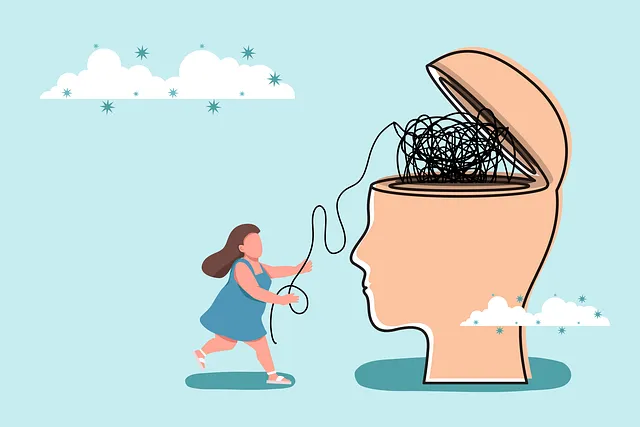Castle Rock Kaiser Permanente leads in culturally sensitive mental healthcare, addressing diverse patient needs through comprehensive training and personalized approaches. Their dedicated mental health appointment service recognizes the link between mental health and cultural background, ensuring tailored care that respects individual identities. Overcoming challenges like language barriers and bias, they foster an inclusive environment, prevent staff burnout, and enable accurate diagnoses, as exemplified by their Castle Rock Kaiser Permanente mental health appointment number.
“Cultural sensitivity is a cornerstone of effective mental healthcare, ensuring that services are accessible and tailored to diverse patient needs. This article explores the nuances of cultural sensitivity in mental healthcare practice, focusing on the unique context of Castle Rock Kaiser Permanente. We delve into challenges that hinder culturally sensitive care and present strategic solutions inspired by successful initiatives at Castle Rock Kaiser Permanente. Understanding these approaches can enhance patient outcomes and enrich the mental health appointment experience for all.”
- Understanding Cultural Sensitivity in Mental Healthcare
- Challenges and Barriers in Providing Culturally Sensitive Care
- Strategies for Incorporating Cultural Sensitivity at Castle Rock Kaiser Permanente
Understanding Cultural Sensitivity in Mental Healthcare

In the realm of mental healthcare, cultural sensitivity is a cornerstone for providing effective and compassionate treatment. It involves recognizing and respecting the diverse beliefs, values, and practices that shape individuals’ lives, ensuring their mental health journeys are as unique and tailored as they are. At Castle Rock Kaiser Permanente, the mental health appointment number serves as a gateway to this nuanced approach, where healthcare professionals are trained to navigate complex cultural landscapes. Understanding cultural sensitivity means recognizing that mental health issues don’t exist in a vacuum but are deeply intertwined with one’s cultural context.
This awareness is crucial for preventing burnout among mental health practitioners, who often encounter diverse patient populations. By incorporating conflict resolution techniques and fostering an environment of cultural sensitivity, healthcare providers can mitigate potential challenges and create safer spaces for individuals from various backgrounds to seek help. It allows for more accurate diagnoses and personalized treatment plans, ensuring that every patient receives the best possible care tailored to their unique needs and cultural identities.
Challenges and Barriers in Providing Culturally Sensitive Care

Providing culturally sensitive care within mental healthcare practices is a complex task, presenting numerous challenges and barriers. One significant hurdle is the potential lack of cultural competence among healthcare professionals. This can stem from limited diversity training or insufficient exposure to diverse patient populations during their education and early careers. As a result, professionals may inadvertently introduce biases or misunderstandings into treatment interactions, hindering effective communication and care.
Additionally, language barriers and cultural differences in expressions of distress or symptoms pose challenges for accurate diagnosis and risk assessment (Castle Rock Kaiser Permanente mental health appointment number). Professionals must adapt their approaches to ensure patients feel understood and supported. Self-Care Routine Development for Better Mental Health can be a powerful tool for bridging these gaps, fostering emotional regulation (Emotional Regulation) and facilitating culturally sensitive practices.
Strategies for Incorporating Cultural Sensitivity at Castle Rock Kaiser Permanente

Castle Rock Kaiser Permanente recognizes the importance of cultural sensitivity in mental healthcare to ensure that all patients feel seen and heard. To incorporate these principles, they offer extensive training programs for their mental health professionals. These workshops delve into diverse topics such as understanding cultural backgrounds, recognizing unconscious biases, and adapting therapeutic practices to meet individual needs. By fostering an environment where cultural competence is at the core of patient care, Castle Rock Kaiser Permanente aims to create a safe space for patients from various ethnic, racial, and socioeconomic backgrounds.
During mental health appointments at Castle Rock Kaiser Permanente, professionals employ strategies like active listening, open-ended questioning, and validating cultural perspectives. They tailor their approach using evidence-based stress reduction methods and mind over matter principles, which have proven effective across diverse populations. Additionally, risk assessment is a critical component, ensuring that practitioners are equipped to handle any potential cultural or psychological complexities that may arise during treatment.
Cultural sensitivity is an essential aspect of providing quality mental healthcare, especially within diverse communities like those served by Castle Rock Kaiser Permanente. By recognizing and addressing barriers such as language differences, cultural misconceptions, and systemic biases, the organization can create a more inclusive environment. The strategies outlined in this article, tailored to Castle Rock Kaiser Permanente’s context, offer a promising path forward. Through staff training, patient engagement initiatives, and policy adjustments, mental health professionals can enhance their cultural competence during appointments (Castle Rock Kaiser Permanente mental health appointment number) and improve overall patient outcomes.






